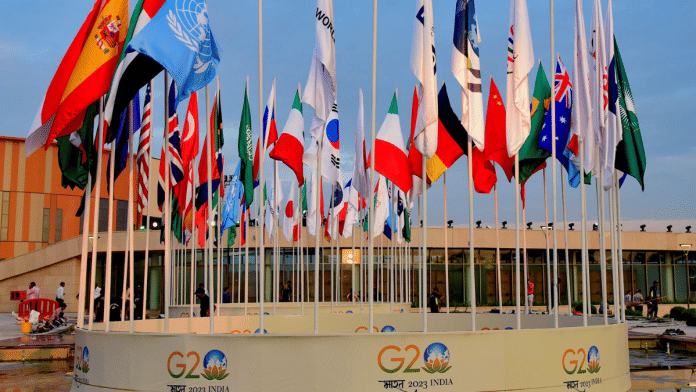New Delhi: The G20 Summit being hosted by India this weekend could finally see consensus on Prime Minister Narendra Modi’s five-year-old push for action against fugitive economic offenders and asset recovery, ThePrint has learnt.
Government sources told ThePrint that a consensus has been reached “more or less” on the need to jointly work against economic fugitives.
“There is a need to work together on sharing the best practices and plugging the gaps wherever possible. Hopefully, a consensus will be reached at the G20 on this and the countries will work together,” a source said to ThePrint.
Economic fugitives are people who commit economic crimes and flee the country where they are wanted to avoid prosecution.
Sources also said the idea is to rope in the Financial Action Task Force (FATF) to work out an international cooperation system on this front.
In 2018, Modi had moved a nine-point agenda for “strong and active cooperation” across G20 countries to deal comprehensively and efficiently with the menace of fugitive economic offenders.
The proposals included cooperation in the legal processes, such as effective freezing of the proceeds of crime, early return of the offenders and efficient repatriation of the proceeds of crime in a streamlined manner.
India had also pressed for a joint effort by G20 countries to form a mechanism that denies entry and safe haven to all fugitive economic offenders.
Principles of the United Nations Convention Against Corruption (UNCAC), and the United Nations Convention Against Transnational Organized Crime (UNTOC), especially related to “international cooperation”, should be fully and effectively implemented, it had said.
It added that FATF should be called upon to assign priority and focus to establishing international cooperation that leads to timely and comprehensive exchange of information between the competent authorities and the financial intelligence units.
“FATF should be tasked to formulate a standard definition of fugitive economic offenders. FATF should also develop a set of commonly agreed and standardised procedures related to identification, extradition and judicial proceedings for dealing with fugitive economic offenders to provide guidance and assistance to G20 countries, subject to their domestic law,” the agenda points said.
India had sought to set up a common platform for sharing experiences and best practices, including successful cases of extradition, gaps in the existing systems of extradition and legal assistance, among others.
The last point said that the G20 forum should consider initiating work on “locating properties of economic offenders who have a tax debt in the country of their residence for its recovery”.
(Edited by Richa Mishra)






